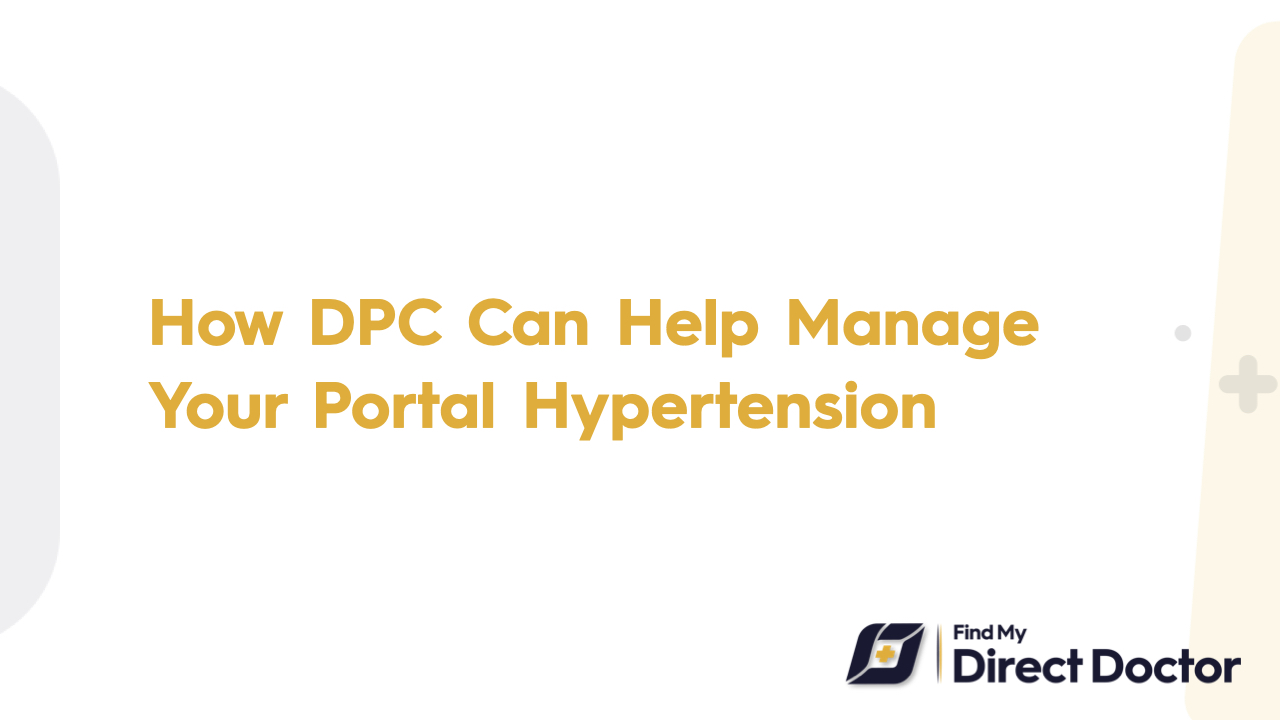



Increased blood pressure in the portal vein, which transports blood from the digestive organs to the liver, is a defining feature of portal hypertension. Liver disorders like cirrhosis, blood clots, or other blockages in the portal vein are frequently the cause of this. Abdominal edema, swollen varices (veins around the stomach or esophagus), and gastrointestinal hemorrhage are possible symptoms. Early detection and treatment are essential since further symptoms could include weariness, decreased appetite, and disorientation or memory problems brought on by toxin accumulation.

Because it provides comprehensive and ongoing care, Direct Primary Care (DPC) is important in controlling portal hypertension. DPC doctors assist patients in efficiently managing complications like varices or ascites by closely collaborating with specialists and conducting routine symptom monitoring. To lessen the burden on the liver and stop the illness from getting worse, early intervention techniques including medication management and lifestyle changes are used. DPC promotes better patient outcomes by swiftly resolving issues.
DPC's emphasis on patient-centered care provides a number of advantages for those with portal hypertension. Direct connection to medical professionals enables prompt symptom management and individualized treatment regimens. Patients can fully comprehend their illness and obtain information on preventive actions, like dietary adjustments and alcohol avoidance, with lengthier appointment times. By emphasizing preventative care, DPC reduces the likelihood of serious consequences and improves the patient's quality of life in general.
DPC provides a comprehensive approach to management by guaranteeing that portal hypertension care is customized to each patient's particular situation. Providers strive to create customized regimens that incorporate routine monitoring, liver health optimization, and, if required, specialized coordination. Patients are given advice on how to control risk factors, such as addressing co-existing diseases like diabetes or lowering sodium consumption to control fluid retention. Patients are empowered to actively participate in their care thanks to this individualized attention, which enhances long-term health results.